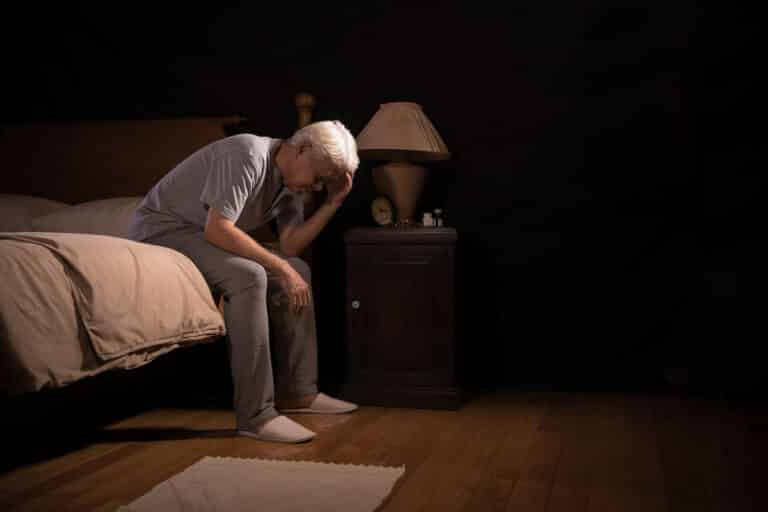As we age, many of us look forward to retirement and the chance to finally relax and sleep soundly. However, for many seniors, insomnia becomes a frustrating and regular part of life. Sleepless nights can leave them feeling groggy and exhausted during the day, impacting their overall well-being.
If you have an elderly loved one struggling with insomnia, you’re not alone. Many seniors experience this issue, but with the right support, including home care services, it’s possible to address the underlying causes and improve their sleep.
Seven Common Causes of Insomnia in the Elderly
- Chronic Pain: Having any type of pain that’s neverending can make sleeping difficult for anyone. From achy arthritis to a bad back, pain can keep your loved one up at night, making sleep impossible.
- Medical Conditions: Some medical conditions may interfere with sleep. Nighttime heartburn, dementia, and an overactive bladder are all very different medical conditions but the one thing they all have in common is that they can make sleeping through the night difficult.
- Medications: Some medications can make sleep difficult, so always check the side effects of any medications that your loved one may be taking. If she takes multiple medications, speak to her doctor or pharmacist if you notice a change in sleeping habits upon taking them. They might be the problem.
- A Bad Sleeping Environment: Whether it’s a room that’s too noisy at night, is uncomfortably warm, or lets in too much light, your loved one might struggle to sleep if her sleep environment doesn’t suit her needs and everyone’s needs are different.
- Bad Habits Before Bed: Certain evening habits can affect how a person sleeps at night. Such as having too much caffeine in the evening can interfere with sleep as well as using devices that produce blue light.
- Not Enough Sun During the Day: Exposure to the sun’s rays helps the body regulate its melatonin levels and its sleep/wake cycles. Even opening the curtains can help.
- Not Being Active During the Day: Consistent daytime exercise can promote better sleep.
Daytime Activities With Home Care Can Help Nighttime Sleeping
Many of the reasons why the elderly struggle with sleep occur during the day, so it makes sense to take steps to improve sleep long before going to bed. Those little changes during the day, with the help of home care services, can make a world of difference when trying to sleep at night.
If your loved one is struggling, consider having her home care provider help her with some daytime activities that can help her sleep better at night. Keeping the mind and body active are great ways to help the body be ready for rest, so daily activities with her home care provider can help her sleep better.
Going for a walk outside, a trip to the local market, or working in the garden all provide the physical movement needed for better sleep as well as expose your loved one to sunshine, which is key to sleeping better as well.
Her home care provider can also assist with having her bedroom ready for sleep when the evening arrives by making sure the bed is made, it’s clean, and the temperature is comfortable. The less your loved one has to do to prepare her bedroom for sleep right before bed, the easier it’ll be for her to go to bed relaxed and ready for some restorative shut-eye.
If you or an aging loved one are considering Home Care in Erie, CO, please contact the caring staff at Talem Home Care & Placement Services today. Call (720) 789-8529
At Talem Home Care of Broomfield, we provide passionate, understanding, and flexible caregivers in Broomfield, Arvada, Aurora, Boulder, Brighton, Commerce City, Denver, Erie, Firestone, Lafayette, Lakewood, Longmont, Louisville, Northglenn, Sherrelwood, Thornton, Welby, Westminster, Wheat Ridge and surrounding areas in Colorado.
- Five Signs Your Loved One May Need Some Help at Home - April 23, 2025
- How Does Home Care Assistance Help Seniors? - April 7, 2025
- What Is the Aid and Attendance Benefit and How Does it Affect Veterans Care? - March 24, 2025







